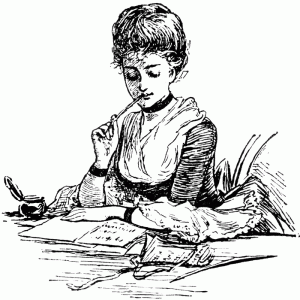 Thanks so much to Deborah Clearman for inviting me to participate in the writing process blog tour–and not to pour cold water over my head.
Thanks so much to Deborah Clearman for inviting me to participate in the writing process blog tour–and not to pour cold water over my head.
Here goes:
1) What I’m supposed to be working on
I am “working” very sporadically on a new young adult novel with an element of fantasy or magic or something. Just what the world needs. I’m not at all confident I will ever actually finish it—but I wanted to try something totally out of my comfort zone. I had a vague notion of a plot, and, once I started, two main characters who seemed to have some idea of where they were going.
2) Why my work is different
I think I have a conversational voice in poetry, and I’m able to write dialogue in my novels pretty easily. (Plot, not so much.) For After Isaac I tried for a voice that wasn’t overly arch and wearingly clever—the way many YA narrators speak. Because poetry is my main genre, the chapters of my books are short—it’s just the way my writing breathes.
3) What I write about
I write a lot about loss. I wasn’t even particularly conscious of it until I put together my poetry chapbook, Recurring Dream. One sad, nostalgic poem after another. It’s no surprise, then, that After Isaac is about a family that loses a child. Some years back I wrote an article for Adoptive Families magazine about families that had endured this, and their stories continued to haunt me. I’m not sure, though, why the narrator of the novel turned out to be 16-year-old boy. And now I find myself in a YA frame of mind.
4) My so-called writing process
At the moment, I’m trying an experiment—a fancy way of saying I’m finding a way to get myself to write. I’m using prompts to move along the novel I’m noodling at. I lead a weekly writing workshop and for each session I bring in two prompts to stimulate the participants’ work. I try not to think too much ahead of time about the prompts I’ve prepared, and sometimes pick them on the spot from a long list one of my sons made for me. I take the same prompts as my workshop members and use them to write a scene. I’m not sure where this will lead, but it’s been fun, especially meeting the new characters who pop up every now and then. The real trick will be giving myself prompts outside of the workshop.
But Wait–There’s More
I am happy to say that three wonderful writers are coming up next on the Writing Process Tour: Jessica Lipnack, Lissa Kierman and Mark Kraushaar. (Mark’s answers will be posted here.)
Jessica Lipnack keeps the the blog Endless Knots. Books about networks and organizational innovation that she’s written with Jeffrey Stamps include Virtual Teams, The Age of the Network, and Networking. She is currently working on a novel and memoir.
Lissa Kiernan’s first book, Two Faint Lines in the Violet, explores poetry’s unique ability to document yet re-vision the nuclear age, how when singing somewhere between the personal and political—if we listen closely—we might hear the social. She blogs at The Rooster Moans, a provider of online workshops, where she serves as director.

